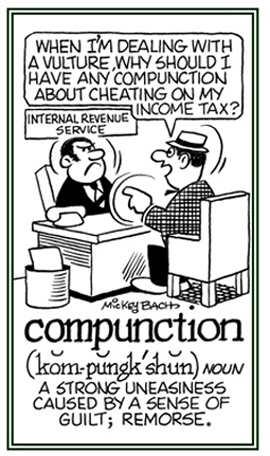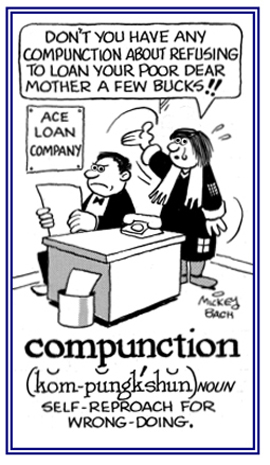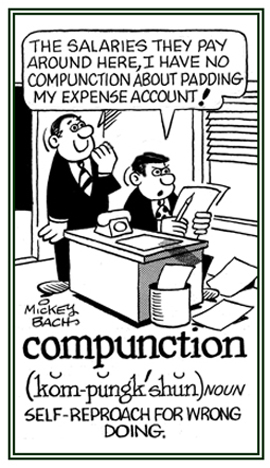autopoint
(s) (noun), autopoints
(pl)
A place-to-place journey over rough country in motor vehicles: Susan was interested in taking part in an autopoint over rugged terrain with her boyfriend and other drivers during their vacation.
beaupoignophile, beaupoignophilist
(s) (noun); beaupoignophiles; beaupoignophilists
(pl)
A collector of small swords: Jeff had a strange hobby of gathering together as many different kinds of little sabres, rapiers, and other bladded weapons and even joined a club with other beaupoignophiles.
caloripuncture
(s) (noun), caloripunctures
(pl)
Therapeutic puncture with hot needles; ignipuncture: The procedure of caloripuncture has not been performed since the 1980s when the advent of laser techniques came into use providing better control of the delivery of energy.
cardiopuncture
(s) (noun), cardiopunctures
(pl)
Surgical incision or a penetration into the heart; cardiocentesis: Mr. Jackson was told by his doctor that he would have to go to hospital for a cardiopuncture to cure him of his heart issue, but he needn't be nervous because the surgeon was excellent.
cauterization by points, punctuate cauterization
(s) (noun); cauterizations by points; punctuate cauterizations
(pl)
A surgical technique in which a fine probe bearing a hot agent is used to heat deep, small areas: Nancy was told that a punctuate cauterization was to be performed to relieve her of the painful issue in her body.
compact, compact, impact, impact
1. Closely or solidly packed with little or no extra space: The cabin was compact but it was still adequate.
2. Smaller than other things of the same kind: The camera is compact and it is still very versatile.
compact (kuhm PAKT, KAHM pakt") (
noun)
1. A small case in which to carry cosmetics; such as, face powder: The movie star got out her compact so she could look in the small mirror and touch up her face.
2. An automobile which is smaller than a medium sized car: In order to save gas, the couple decided to purchase a compact, replacing their larger model.
3. An agreement or a covenant: The knight swore a compact with his king to protect the kingdom.
1. The act or force of one thing hitting something else: No one could have survived such an impact of the large stone that came tumbling down that mountain onto the highway.
2. The impression of something which may be compelling or significant: The impact of the discoveries of Madam Curie revolutionized science.
To make forceful contact with: The terrible collision between the man’s car and the truck will impact significantly on his car insurance rates.
The compact between the automobile companies resulted in the development of several compact models which had a significant impact on the economy.
compunction
(s) (noun), compunctions
(pl)
1. A strong feeling of uneasiness or anxiety of the conscience caused by regret or guilt for doing something wrong or causing emotional pain and suffering: Jack had a feeling of
compunction when he couldn't celebrate his mother's 90th birthday with her because he had to work late in order to complete a project that he was working on.
2. Any uneasiness or hesitation about an action being proper: Wouldn't anyone have
compunctions about meeting the Queen and not knowing what to wear or what to say on such an occasion?
3. A sting of conscience or a pang of doubt aroused by doing something wrong: Rodney was filled with
compunction after he lied to his parents when he told them that he had done his homework for school, however he actually spent his time reading comic magazines instead.
Compunction is a strong, sudden, and unpleasant regret or emotion of guilt.
 © ALL rights are reserved.
© ALL rights are reserved.
 © ALL rights are reserved.
© ALL rights are reserved.
 © ALL rights are reserved.
© ALL rights are reserved.
Go to this Word A Day Revisited Index
so you can see more of Mickey Bach's cartoons.
compunctious
(adjective), more compunctious, most compunctious
A reference to a person who is feeling regret about some action or situation: The thief didn't have any compunctious feelings of guilt when he stole the wallet from the wealthy gentleman standing on the side of the street.
compunctiously
(adverb), more compunctiously, most compunctiously
Referring to how someone does or says something in a remorseful way: Mr. Lowly excused himself compunctiously that he was so sorry to have come late to the dinner party.
compunctive
(adjective), more compunctive, most compunctive
Sensitive in respect to wrongdoing; conscientious: Grace was quite susceptible to remorse and cried compunctive tears before entering her mother's bedroom.
counterpunch
(s) (noun), counterpunches
(pl)
1. An attack or a blow made by a boxer in response to an opponent's hitting him: During their fight the two boys gave each other counterpunches until one fell backwards and couldn't get up again.
2. Etymology: meaning of "to hit with the fist" was first recorded 1520's, probably influenced by punish; the noun sense of "a blow with the fist" is recorded by 1570's; from Middle English punchen, "to thrust, prod; from Old French poinçonner, ponchonner, "to emboss with a punch; from poinçon, ponchon, "pointed tool"; from Latin punire, "to inflict a penalty on, to cause pain for some offense"; from earlier poenire, from poena, "penalty, punishment".
craniopuncture
(s) (noun), craniopunctures
(pl)
A small hole made by a sharp object in the brain for medical purposes: Dr. Needle informed his patient, Mrs. Hathaway, that he would need to take a small sample of the tumor in her brain by the way of a craniopuncture, which he would make with utmost care and precision.
dementia pugilistica
(s) (noun), dementia pugilisticas
(pl)
1. Chronic traumatic encephalopathy (any degenerative disease of the brain): A dementia pugilistica is a syndrome resulting from cumulative head blows absorbed in the boxing ring, which is characterized by general slowing of mental function, occasional bouts of confusion, and scattered memory loss. It may progress to the more serious boxer's dementia.
2. Dementia resulting from cumulative damage sustained over some years in boxing, resulting in slowed thinking, memory loss, dysarthria (speech that is characteristically slurred, slow, and difficult to produce, and therefore difficult to understand), and other movement disorders: Dementia pugilistica, also called chronic traumatic encephalopathy, pugilistic Parkinson's syndrome, boxer's dementia, and punch-drunk syndrome, is a neurological disorder which affects some career boxers and others who receive multiple blows to the head.
3. A condition seen in boxers (and alcoholics), caused by repeated cerebral concussions and characterized by weakness in the lower limbs, unsteadiness of gait, slowness of muscular movements, hand tremors, hesitancy of speech, and mental dullness: The condition of dementia pugilistica develops over a period of years, with the average time of onset being about sixteen years after the start of a career in boxing.
disappoint
(verb), disappoints; disappointed; disappointing
1. To displease a person by not delivering something hoped for: The mail Lynn was wishing for didn't come and this disappointed and saddened her a whole lot!
Jane knew that she would disappoint him when she turned down his invitation to the party.
2. To fail in meeting an expectation or gratifying a hope; to let down: When the players lost the basketball game, they certainly disappointed the coach and some of their parents as well.
3. To thwart or to frustrate: Sally didn't want to disappoint the trust her parents had in her.
disappointedly
(adverb), more disappointedly, most disappointedly
Referring to how a person reacts after his or her hopes, desires, or expectations have been thwarted: After receiving her poor grade in English, she walked back sadly and disappointedly to her desk in the classroom.
Cross references of word families that are related directly, or indirectly, to: "sour, sharp":
acerb-;
aceto-;
acid-;
acies- (not "sour");
acuto- (not "sour");
oxy-.





